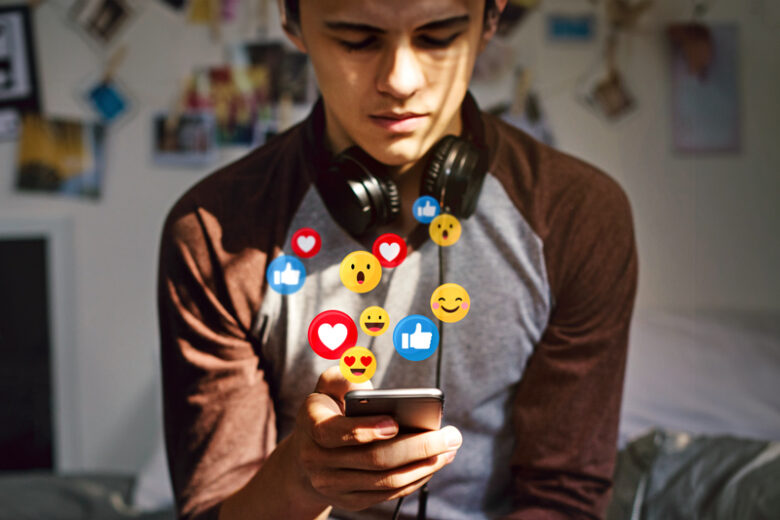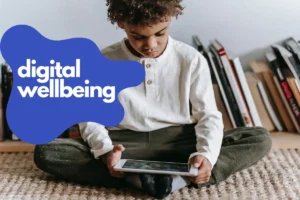A screen-life balance means using technology in ways that enhance your life without compromising your time, attention, or health. In today’s fast-paced digital world, many people spend their days on phones, tablets, and computers—working, entertaining, and communicating. Screens are an essential part of modern life, but too much time spent with them can lead to stress, sleep problems, eye strain, and even decreased productivity. Digital well-being is about developing a better relationship with technology so that online activities don’t take over your life.
Why Digital Wellbeing Matters
Digital well-being doesn’t mean eliminating technology; it means using it more mindfully and consciously. Ignoring technology isn’t an option, as it’s almost every part of modern life. However, if you don’t find a balance, all the notifications, scrolling, and digital distractions can take a toll on your physical and mental health. By mastering simple digital well-being principles, you can still enjoy the benefits of the digital world while maintaining your focus, energy, and happiness. A balanced life allows you to stay connected while also finding time for yourself, nurturing relationships, and relaxing.
Prioritize Offline Activities
Making more time for offline activities is one of the easiest ways to improve your digital well-being. Instead of spending long hours in front of a screen, you can read, exercise, cook, spend time outdoors, or pursue a hobby. Offline activities not only help people disconnect from their devices but also boost their physical and mental well-being. When you consciously make time for these moments, you can enjoy a more balanced life, where technology enhances real-world experiences rather than replacing them. By returning to activities you enjoy offline, you can feel better and reduce the negative effects of excessive online time.
The Role of Digital Detoxes
A digital detox is a planned period without technology that helps you reconnect with your devices. You can take a few hours off your phone or do something unrelated to the internet for an entire day. Disconnecting from technology can refresh your mind, improve your focus, and build connections with the real world. Many people report that their technology use becomes more purposeful and clearer after a tech detox. Even regular, short digital detoxes can help you maintain a healthy balance between screen time and your personal life.
Setting Boundaries on Technology Use
Setting boundaries is important because it guarantees that technology doesn’t invade your time and space. This means establishing clear rules about when and where devices are allowed. For example, turning off your screen during mealtimes allows for more meaningful conversations with your family. Reducing work emails after work can help you relax and unwind. These boundaries can reduce stress, improve relationships, and help people make healthier choices. Controlling your use of technology instead of constantly reacting to it can create independence and inner peace.
Use Social Media Carefully
Social media is a key way to connect with others in the digital age, but it can also be a major source of stress. It helps people stay connected, but it can also lead to distraction and even anxiety caused by the need to compare yourself to others. When practicing mindfulness on social media, make sure your feed is full of positive, uplifting content and avoid spending too much time on sites that drain your energy. If you use social media mindfully, you might just turn it into a place of learning and inspiration, instead of one filled with negativity.
Use Technology to Help you Grow
Digital well-being doesn’t mean giving up technology; it means using it wisely to help you grow and be more productive. Meditation, fitness, learning, and time-management apps can enrich your life if used wisely. Instead of just scrolling through your phone, you can use technology to track your habits, develop your talents, or organize your daily routine. When you shift from passively using technology to mindfully using it, it becomes a tool for self-improvement instead of a barrier to doing what you want. With this mindset, you can use technology without it taking over your life.
Looking Ahead to a Balanced Digital Future
As technology continues to evolve, finding the right balance between screen time and your life remains a key concern. With advances in artificial intelligence, virtual reality, and immersive digital platforms, people need to carefully manage their online time. By implementing a few simple digital well-being tips now, you can prepare for a more connected future. When you use digital technology in ways that help you achieve your goals while also supporting your physical and mental health, you gain control over your online life.
Conclusion
A simple guide to digital well-being can help you find a better balance between screen time and your life, leading to a healthier life. You can regain control of your digital habits by making small changes, setting boundaries, disconnecting from technology, and focusing on non-technological activities. The key isn’t to eliminate technology but to use it carefully and purposefully. If you know about it and use it regularly, it can still help you. The internet provides ample opportunities for genuine connection, relaxation, and personal growth. If you use technology in ways that truly benefit your health, you may be able to have a balanced screen life.
FAQs
1. What does a balanced screen life mean?
A balanced screen life means you can use technology without it intruding on your time, health, or relationships. This helps you maintain a balance between your online and offline life.
2. What is the importance of digital well-being?
Digital well-being is crucial because prolonged screen time can harm your health, hinder your concentration, and increase your stress levels. On the other hand, careful use of technology can benefit your overall well-being.
3. How can I improve my screen life?
You can improve your screen life by setting boundaries, reducing notifications, doing a digital detox, and prioritizing activities that bring you joy and relaxation.
4. What are the benefits of unplugging from technology?
A digital detox can help you relax and focus better, improve your real-life relationships, and transform your relationship with technology, leading to healthier long-term habits.
5. Does technology really make you feel better?
Yes, technology can have benefits if used wisely. Helpful apps and tools can improve productivity, enhance fitness, and learning, and boost mental health.




